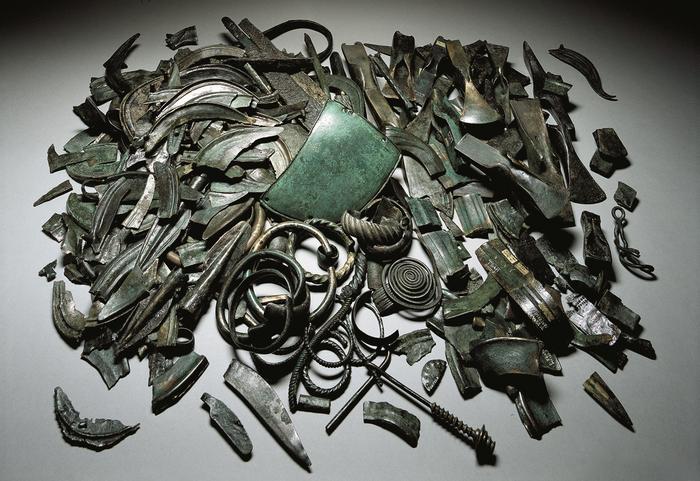What if the ‘Market Economy’ always existed? Archaeologists from the Universities of Göttingen in Germany and Salento in Italy tried to answer this question by researching how much Bronze Age people used to spend to sustain their daily lives. Their results show that, starting at least 3,500 years ago, the spending habits of prehistoric Europeans were not substantially different from what they are today. The study was published in Nature Human Behaviour.

Credit: Landesamt für Archäologie Sachsen / J. Lipták
What if the ‘Market Economy’ always existed? Archaeologists from the Universities of Göttingen in Germany and Salento in Italy tried to answer this question by researching how much Bronze Age people used to spend to sustain their daily lives. Their results show that, starting at least 3,500 years ago, the spending habits of prehistoric Europeans were not substantially different from what they are today. The study was published in Nature Human Behaviour.
The study analysed more than 20,000 metal objects from more than 1,000 hoards that were buried in Italy, Switzerland, Austria, Slovenia and Germany between around 2,300 BC and 800 BC. The researchers used a statistical technique to determine if the analysed objects are multiples of a unit of weight. They found that starting around 1,500 BC, metal objects were intentionally fragmented in order to obtain multiples of the weight unit of roughly 10 g – a unit which was used everywhere across Europe. This indicates that metal fragments circulated as money. Then they analysed the statistical distribution of the daily expenses of prehistoric households in prehistoric Europe – meaning they observed how much was spent in various amounts – and compared it with modern Western economies.
The researchers found that the weight values of metallic money in prehistory had the same statistical distribution of the daily expenses as a modern Western household: small everyday expenses made up the vast majority of expenses, while larger expenses were comparatively rare. Using simulations, they demonstrated that the most likely scenario to explain the prehistoric data is to imagine an economic system regulated by supply and demand, in which everyone participates proportionally to how much they earn. That is, a market economy.
The prehistoric economy is commonly imagined as a primitive system based on barter and on the exchange of gifts, with the market system appearing as some kind of evolutionary milestone at some point during the making of ‘advanced’ Western societies. The study challenges this notion by showing that not only did the market exist before formal coinage was invented, but even long before any form of state actually appeared in Europe. “We are used to thinking of the market economy as a product of modernity, an innovation that deeply changed people’s lives and minds as soon as it appeared,” explains Dr Nicola Ialongo, University of Göttingen’s Institute for Prehistory and Early History. “Our results suggest that it may have always existed. In a way, one could even think of it as one of the many behavioural traits that define us as humans: like warfare and marriage.”
“To be honest, we were quite surprised by our results,” adds Giancarlo Lago, who carried out the research while at the University of Salento, Department of Cultural Heritage. “Our findings defy some long-established beliefs among archaeologists, economists and anthropologists. They also suggest that many of the differences that we see between ‘Western’ and supposedly ‘primitive’ cultures are not as substantial as we might think.”
Original publication: Ialongo, N., Lago, G. 2024. Consumption patterns in prehistoric Europe are consistent with modern behaviour. Nature Human Behaviour 2024. www.nature.com/articles/s41562-024-01926-4.
Contact:
Dr Nicola Ialongo
University of Göttingen
Faculty of Humanities
Institute for Prehistory and Early History
Nikolausberger Weg 15, 37073 Göttingen
Tel: +49 (0)551 25078
Email: nicola.ialongo@uni-goettingen.de
www.uni-goettingen.de/de/569681.html
Journal
Nature Human Behaviour
Method of Research
Data/statistical analysis
Subject of Research
People
Article Title
Consumption patterns in prehistoric Europe are consistent with modern economic behaviour
Article Publication Date
29-Jul-2024



